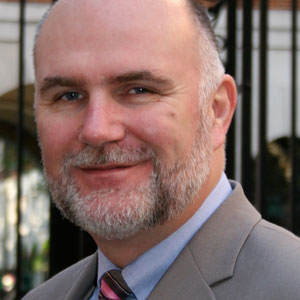Exclusive A split in the BMA has emerged as the Labour party calls for more funding, with BMA chair Dr Mark Porter saying GPs should not be given a greater share of the NHS budget, Pulse can reveal.
In an exclusive interview with Pulse, Dr Porter said that while general practice does need ‘proper resourcing’ he would ‘not care to nominate’ the other areas of the NHS that would need to give up resources to shift funds into general practice, adding that RCGP and GPC arguments for an 11% share of NHS funding did ‘not go into detail’ of how health services should ‘responsibly’ be funded.
Dr Porter was speaking to Pulse at the Labour party conference in Manchester, before party leader Ed Miliband’s speech, which is expected to outline plans for a ‘mansion tax’ on properties worth more than £2m in order to provide greater funding for the NHS.
The RCGP launched its campaign for general practice to receive at least 11% of the overall NHS budget at the end of last year, after new estimates showed it was receiving just 8.4%, while GPC chair Dr Chaand Nagpaul today reiterrated his comments that the NHS is in ‘danger of collapse’ unless the share of funding given to general practice is increased to 11%.
But Dr Porter criticised the calls for the percentage of funding to increase, stating that this would negatively affect other areas.
He said: ‘I think the problem with thinking in the individual figure is, if you said to me specifically “if the [overall NHS] resource stays the same, should [GP funding] go to 11%?”. Well, if that is the case, the 93% that is available to everybody else, if we assume that figure were correct, then the 93% available to everybody else becomes 89% and that is another 4% worth of cuts elsewhere.
‘Would you care to nominate the areas that they should be cut from? I wouldn’t, and that is why I think there is a little bit of artificiality about campaigning on an individual number that is not based on a specific need. What is unarguable is that general practice needs proper resourcing and that proper resource lies somewhere north of where we are at the moment.’
Related stories
Dr Chaand Nagpaul: ‘11% of funding for general practice isn’t an arbitrary target’
GP funding reduced by 2.3% last year despite overall increase in DH spend
It comes as Labour leader Ed Miliband is widely expected to announce increased spending on the NHS on the whole, in a speech at the conference later today, as a pledge ahead of the general election next May.
Both the BBC and the Guardian have reported that Mr Miliband will propose that Labour tax increases for the wealthy – including a ‘mansion tax’ on homes worth more than £2m announced by shadow chancellor Ed Balls yesterday, and a tax on tobacco companies – should be used to increase NHS spending, with the BBC reporting that this would by £1bn a year.
However, Dr Porter said that if the next Government did raise the overall NHS resource, then the calls for general practice to receive an 11% share would still be ‘problematic’ because ‘11% would be 11% of a much larger cake’.
He said: ‘That is the problem with pegging to a percentage. It is a good way to have an individual headline but what it doesn’t do is go into the detail of how we should be responsibly funding the service that patients so closely depend on.’
But responding to those comments, Dr Nagpaul said this target was ‘the rightful way’ to ‘manage a pressured health resource’.
He told Pulse: ‘I mean 11% isn’t some arbitrary target in its own right. Ten years ago, 10% of the NHS budget was spent on general practice so we are not talking about something that is an unreal expectation.’
He added that ‘every political party’ was now ‘totally committed to expanding care in the community’.
Dr Nagpaul said: ‘The figures speak for themselves when you pause and reflect that a GP is given just over £73 for seeing a patient an unlimited number of times, including home visiting, for a whole year. How can that not be efficient compared to the fact that about £150 is spent for an average outpatient tariff appointment, one single contact in hospital?
‘I think there is a compelling argument and it is not an argument based on some target, it is an argument based upon recognising the rightful way of managing a pressured health resource.’
Pulse October survey
Take our July 2025 survey to potentially win £1.000 worth of tokens













